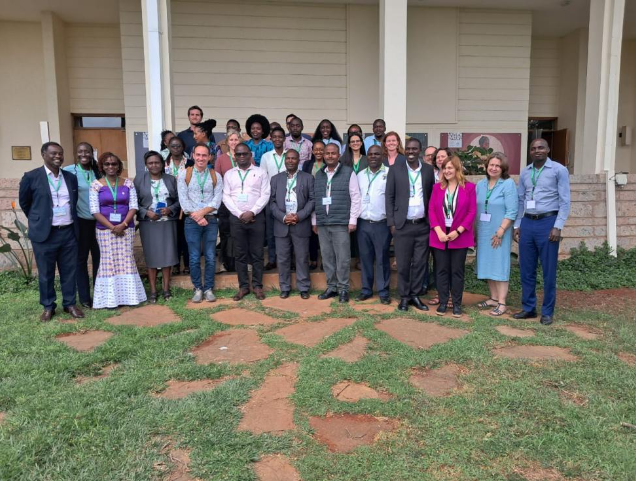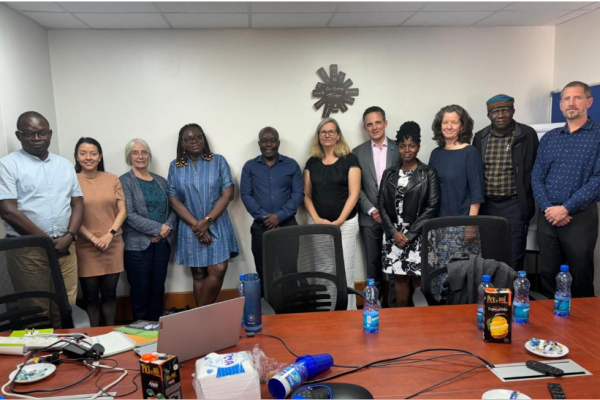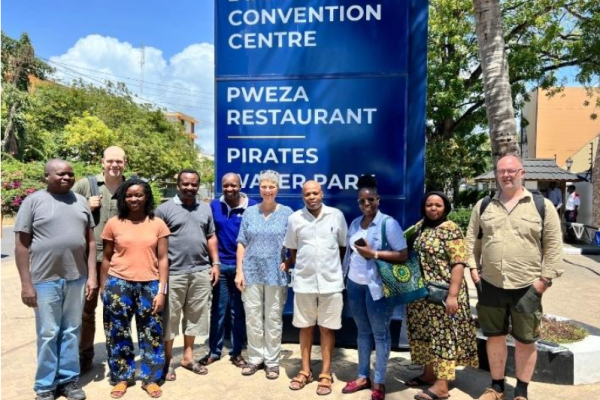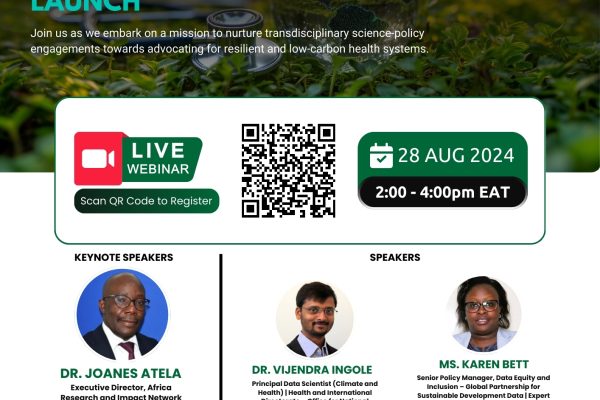Participants in the Adaptation Insights Workshop
By: Leah Aoko, Dr. Humphrey Agevi, Florence Onyango
The Africa Research and Impact Network (ARIN) recently participated in the Adaptation Insights Inception Workshop held on October 16, 2024, at the International Livestock Research Institute (ILRI) campus Vercoe Auditorium in Nairobi. Organized by the Alliance Bioversity International-CIAT and funded by the Gates Foundation, the workshop marked an important step toward addressing climate adaptation data challenges across Africa. The Adaptation Insights project aims to enhance the availability, quality, and use of climate adaptation data, focusing particularly on agricultural resilience in Africa.
Representing ARIN, Research Associate and Project Lead for Locally Led Adaptation Metrics for Africa (LAMA) Leah Aoko, and Dr. Humphrey Agevi, Research Associate for Climate Change and Development, shared insights from ARIN’s initiatives, including their ongoing efforts to assess the effectiveness of adaptation interventions in East Africa. ARIN’s contributions center on establishing integrated adaptation indicators across key areas, mainly agriculture and food security, water management, nature-based solutions, and disaster risk reduction.
The workshop addressed persistent data fragmentation, which has hindered adaptation planning and progress tracking in many African regions. Participants explored how a cohesive data-sharing network could be instrumental in climate adaptation across various governance levels. Emphasis was placed on tools and indicators that reflect on-the-ground realities to provide real-time insights for national governments, local authorities, and the private sector. Through improved data-sharing mechanisms, the Adaptation Insights project aims to develop standardized platforms across Africa, enabling stakeholders to more effectively assess adaptation progress and address gaps.
Discussions also highlighted the importance of adaptation metrics tailored to regional contexts, critical for tracking national progress on climate goals such as the Global Goal on Adaptation and National Adaptation Plans (NAPs). ARIN’s work through LAMA presents a pioneering approach, blending national and sub-national indicators to create comprehensive adaptation metrics. These metrics not only support national climate reporting but are also invaluable for driving community-level adaptation actions.
ARIN’s active participation in Adaptation Insights aligns with its mission to strengthen Africa’s climate adaptation capacity through data-driven approaches. During the workshop, ARIN shared insights from its various initiatives, including assessments of adaptation effectiveness across East Africa, focusing on agriculture, water management, nature-based solutions, resilient land management, and disaster risk reduction. Additional initiatives such as LAMA and the Math4CCR project (Leveraging Mathematical Sciences for Climate Resilience in Africa) reinforce ARIN’s role as a key partner in Africa’s climate resilience efforts, contributing essential knowledge and methodology to the Adaptation Insights network.
The Adaptation Insights project is positioned to support African countries during international climate negotiations, including the UAE-Belém work program on adaptation indicators, by providing timely evidence and data. This evidence-based approach is designed to guide policymakers and stakeholders in making informed decisions that enhance Africa’s climate resilience. The workshop underscored the need for ongoing cooperation and co-development of data tools tailored to regional challenges, ensuring adaptation solutions remain effective and impactful at the local level.
Outcomes from the Adaptation Insights project will enhance decision-making in climate adaptation, support funding, and drive policies based on reliable data. For ARIN and other participants, the workshop represented a meaningful step toward a future where data is not only accessible but also integral to Africa’s climate adaptation journey.
© ARIN Press




